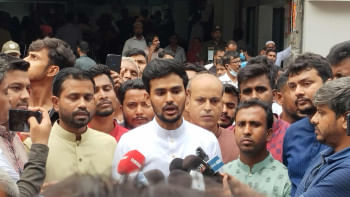West urged to address root cause of terrorism
Pakistani President Pervez Musharraf vowed yesterday to pursue extremists but warned that operations against al-Qaeda and the Taliban were of short-term tactical value and that root causes of terrorism must be addressed.
"There must be no doubt that we must all act and launch a war against extremism and terrorism," he said in a speech to students at the prestigious Peking University on the second day of a visit to meet China's new leaders.
"But let me say that these are only symptoms. If we want to win the war against extremism and terrorism, we must also address the root causes."
His comments were in a similar vein to those of outspoken and recently retired Malaysian leader Mahathir Mohamad who warned last month that conflicts would never be won through brute force.
"Operations against al-Qaeda and the Taliban, Hamas and Hezbollah are all of short-term tactical value," said Musharraf.
"Long-term strategy lies in addressing the root causes of terrorism. What is the cause of extremism and militancy? It is hopelessness, powerlessness, desperation, injustice and because of non-resolution of long-standing political dispute.
"That is the cause. Also added to this are poverty and lack of education."
Pakistan, home to several Islamic extremist organisations and a hideout for hundreds of al-Qaeda fugitives, has since the September 11, 2001 attacks, evolved as a crucial ally of Washington in its anti-terror campaign.
But Musharraf warned that Muslims increasingly feel that Islam is being targeted in the current campaigns being waged by the United States
Without referring to the Bush administration explicitly, he said many people in the West were under the impression that Islam was a religion of extremism, militancy and intolerance.
"Both these misconceptions are wrong and must be addressed," he said.
He emphasized that Islam does not teach extremism, militancy or intolerance and was not in conflict with democracy, secularism, and modernism.
"Unfortunately, the Muslim extremists show a distorted version of our great religion Islam."
The Pakistani leader is on his first visit to Beijing since China's new leadership was installed in March.
His trip comes five months after Indian Prime Minister Atal Behari Vajpayee was welcomed by Chinese President Hu Jintao as the first Indian premier in Beijing for a decade.
China's relationship with both its nuclear-capable South Asian neighbours has been viewed as of particular interest since India and Pakistan began a delicate peace process after coming close to their fourth war last year.

 For all latest news, follow The Daily Star's Google News channel.
For all latest news, follow The Daily Star's Google News channel. 



Comments